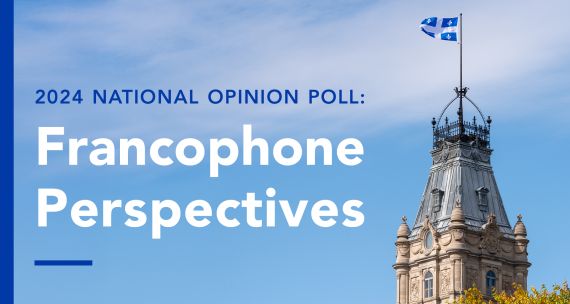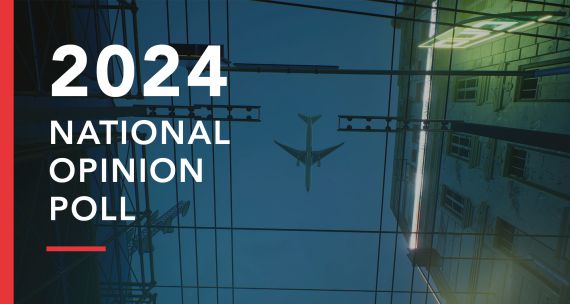It's Monday morning, and Madison Millennial is cruising to her job at a high-tech startup downtown. Organic avocados bounce about in her Herschel courier bag as she pedals her vintage 1980s Norco through the city streets. She is well heeled, ironically detached and politically disengaged. Or, at least that's the picture the political pundits paint in their attempts to deconstruct this new political powerhouse: the Canadian millennial.
It is these young Canadians, currently aged 18-to-34, who by virtue of demography will outnumber the baby boomers in the 2019 federal election. Just how accurate – or fair – is the general characterization of this up-and-coming generation as affected and apathetic? A new opinion poll by the Asia Pacific Foundation of Canada would suggest – at least where it comes to attitudes toward Asia and Canada's engagement with the region – that there may be more to this generation than avocado-toast-fuelled narcissism. As Prime Minister Justin Trudeau begins a visit to China for talks with government and business leaders, he may want to consider the opinions of young Canadians who will play such an integral part in Canada's future, and its pivot to Asia.
First, Canadian millennials are not a homogeneous group. Our results clearly indicate that there are in fact two distinct subgroups within this generation: younger millennials (the 'learning generation,' aged 18-24) and older millennials (the 'engaged generation,' aged 25-34).
Members of the learning generation are very positive toward Asia. They recognize that they still have a lot to learn about the region but are eager to do so. They rely on social media as their key source of information. Members of the engaged generation, on the other hand, are better informed about Asia than their juniors, but are more inclined to share unfavourable views about Asia with their older peers. They get their information more from websites and less from social and traditional media sources.
Second, millennials are more enthusiastic about Asia in general and more engaged with the region through work, travel, language and social networks than Generation X, the baby boomers and older generations.
Third, millennials tend to be more pragmatic when it comes to their views on what should drive Canadian foreign policy. Younger millennials (18-24) are more likely to argue that economic opportunities should shape Canada's foreign policy, while older millennials (25-34) are more likely to identify opportunities for collaboration on global issues, such as climate change, as shaping our international outreach. (This is in stark contrast to Canadians 35 and older who believe that Canada should prioritize relationships with countries that uphold Canadian values).
The survey also identifies some common Canadian attitudes that span generations. All generations have a China-centric mental image of Asia; nearly 70 per cent of Canadians think of China when they hear the word Asia. And all Canadians have the most positive feelings toward the governments of Japan and South Korea, while they are more critical of India, China and the Philippines. In characterizing these governments, Canadians most frequently associate "well-functioning" with Japan and South Korea, "corrupt and dysfunctional" with India, "authoritarian and repressive" with China, and "authoritarian and corrupt" with the Philippines.
The poll also revealed that Canadians sense a sea change in the world order. In describing the United States, Canadians most frequently use the words "declining, unstable and threatening." Meanwhile, they characterize China as "strong and rising," Japan and South Korea as "stable," with Japan also being seen as "strong" and South Korea being "moderate." India, like China, is perceived as "rising." Notably, the Philippines is placed in the same basket as the United States, and characterized as "unstable" and "weak."
And what can Canadian policy-makers take away from these findings? Far from being disinterested and disengaged, millennials are quite likely to support a Canadian pivot toward Asia, and the government's negotiation of more open trade agreements with China and the economies of ASEAN. They also welcome the government taking the lead in creating opportunities for Canadians, particularly young Canadians, to learn more about Asia.
Madison Millennial and her cadre of earnest peers represent the first generation of Canadians to come of age during a time when the "rise of Asia" has moved from a future probability to a present reality. As Canada considers its engagement with this important region, it is young Canadians like her who will play a key role in shaping the form and scope of that engagement.
This piece was first published in The Globe and Mail on December 3, 2017.



